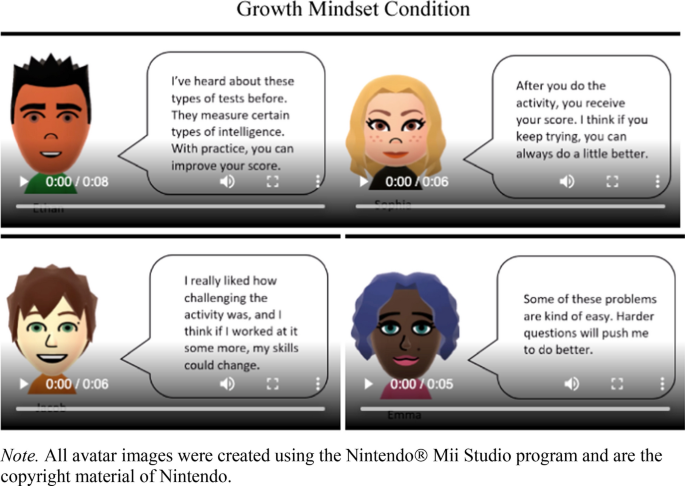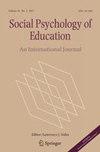同伴虚拟学习环境中的成长心态与社会比较效应
IF 3.2
2区 心理学
Q1 PSYCHOLOGY, EDUCATIONAL
引用次数: 0
摘要
同龄人在青春期变得特别有影响力,这是一个以学习动机最低点为标志的发展时期。在课堂上,青少年经常与同龄人进行社会比较,以确定自己的学术能力,这对他们的动机和学习有实质性的影响。本研究旨在探讨同伴心态和社会比较过程如何相互作用影响青少年的学习成果和社会比较反应。参与者(N = 120, M = 12.73岁,58%为女性)创建虚拟形象来代表自己,并从所谓的同伴虚拟形象中听到成长心态或中性言论。然后,他们完成了一系列在线自我报告调查,衡量他们的学习成果,完成解决问题的任务,并通过虚拟排行榜收到关于他们和同龄人表现的反馈。多变量组间比较发现,成长心态的同伴提高了青少年的学习成绩,而社会比较则抑制了学习成绩。同伴成长心态与社会比较无交互作用。本文章由计算机程序翻译,如有差异,请以英文原文为准。

Growth mindset and social comparison effects in a peer virtual learning environment
Abstract Peers become especially influential in adolescence, a developmental period marked by a nadir in school motivation. In the classroom, adolescents often engage in social comparison with their peers to ascertain their own academic competence, which can have substantial effects on their motivation and learning. The present experimental study examined how peer mindset and social comparison processes may interact to affect adolescents’ learning outcomes and responses to social comparison. Participants ( N = 120, M age = 12.73 years, 58% female) created avatars to virtually represent themselves and heard growth mindset or neutral statements from purported peer avatars. They then completed a series of online, self-report surveys measuring their learning outcomes, completed problem-solving tasks, and received feedback on their and their peers’ performance via a virtual leaderboard. Multivariate between-group comparison revealed growth mindset peers increased adolescents’ learning outcomes, while social comparison dampened outcomes. No interactions between peer growth mindset and social comparison were found.
求助全文
通过发布文献求助,成功后即可免费获取论文全文。
去求助
来源期刊

Social Psychology of Education
PSYCHOLOGY, EDUCATIONAL-
CiteScore
5.40
自引率
3.40%
发文量
59
期刊介绍:
The field of social psychology spans the boundary between the disciplines of psychology and sociology and has traditionally been associated with empirical research. Many studies of human behaviour in education are conducted by persons who identify with social psychology or whose work falls into the social psychological ambit. Several textbooks have been published and a variety of courses are being offered on the `social psychology of education'', but no journal has hitherto appeared to cover the field. Social Psychology of Education fills this gap, covering a wide variety of content concerns, theoretical interests and research methods, among which are: Content concerns: classroom instruction decision making in education educational innovation concerns for gender, race, ethnicity and social class knowledge creation, transmission and effects leadership in schools and school systems long-term effects of instructional processes micropolitics of schools student cultures and interactions teacher recruitment and careers teacher- student relations Theoretical interests: achievement motivation attitude theory attribution theory conflict management and the learning of pro-social behaviour cultural and social capital discourse analysis group dynamics role theory social exchange theory social transition social learning theory status attainment symbolic interaction the study of organisations Research methods: comparative research experiments formal observations historical studies literature reviews panel studies qualitative methods sample surveys For social psychologists with a special interest in educational matters, educational researchers with a social psychological approach.
 求助内容:
求助内容: 应助结果提醒方式:
应助结果提醒方式:


